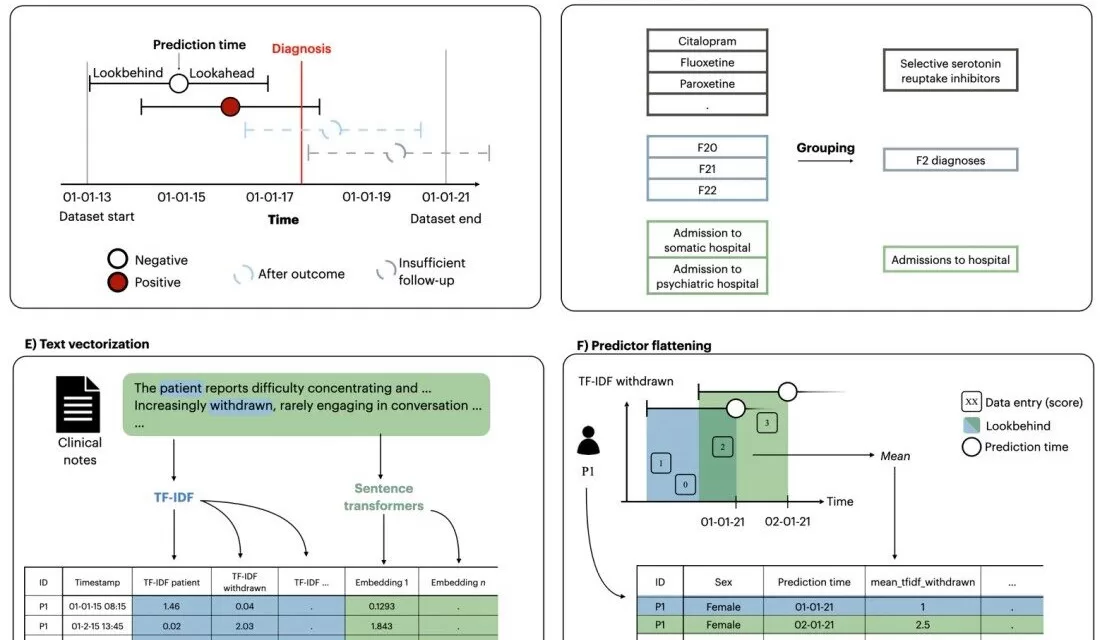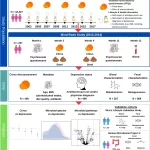Schizophrenia and bipolar disorder are severe mental illnesses that typically emerge in early adulthood. While effective treatments exist, timely and accurate diagnosis remains a major challenge. Delays in diagnosis can lead to worsening symptoms and a more difficult treatment process.
New research from Aarhus University and Aarhus University Hospital—Psychiatry, published in JAMA Psychiatry, suggests that artificial intelligence (AI) may help address this issue by predicting the likelihood of individuals developing these disorders.
Harnessing AI for Early Detection
Professor Søren Dinesen Østergaard from the Department of Clinical Medicine at Aarhus University, who led the research team, highlights the difficulty of diagnosing schizophrenia and bipolar disorder at early stages. “It is a difficult clinical challenge to solve, but we have given it a try, and the results of this study show that we are on the right track,” he explains.
The study analyzed electronic health records of 24,449 patients who had previously received treatment for mental health conditions such as anxiety and depression. Researchers developed a machine-learning algorithm capable of estimating the probability of these patients developing schizophrenia or bipolar disorder within the next five years.
Promising Yet Imperfect Results
The algorithm examines over 1,000 factors from health records, including prior diagnoses, prescribed medications, and clinical notes. It then classifies patients as high or low risk. For every 100 patients labeled as high risk, approximately 13 are later diagnosed with schizophrenia or bipolar disorder. Meanwhile, for every 100 labeled as low risk, 95 do not develop these conditions.
“This level of accuracy is probably not sufficient for immediate clinical use, but we have a good idea of how to improve it. A more sophisticated analysis of clinical notes appears to be key,” says Østergaard.
The Role of Clinical Notes in Predictions
Further analysis revealed that words within clinicians’ notes played a crucial role in the AI’s predictions. Terms describing symptoms such as social withdrawal and auditory hallucinations, as well as references to psychiatric hospital admissions, were strong indicators of future diagnoses.
Despite this, the AI model used was relatively simple, relying only on word frequency rather than contextual understanding. Østergaard believes that newer AI models, similar to those powering ChatGPT, could enhance the predictive power of future versions of the algorithm.
“We are optimistic that AI will eventually be precise enough to support clinical decision-making, and we will continue refining our approach,” he concludes.
Future Implications
The study underscores the potential of AI in revolutionizing mental health diagnostics. While the algorithm is not yet ready for clinical deployment, its promising results pave the way for future advancements in AI-driven early detection.
Disclaimer: This research is still in development, and AI predictions should not be used as a substitute for professional medical diagnosis. Individuals experiencing mental health concerns should consult a qualified healthcare provider.










